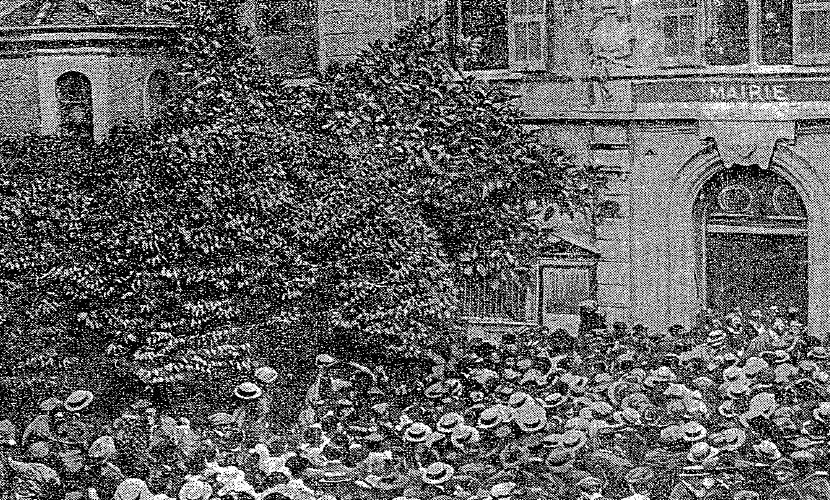Monégasque Revolution on:
[Wikipedia]
[Google]
[Amazon]
 The Monégasque Revolution () was a series of confrontations by the subjects of
The Monégasque Revolution () was a series of confrontations by the subjects of
 The Monégasque Revolution () was a series of confrontations by the subjects of
The Monégasque Revolution () was a series of confrontations by the subjects of Monaco
Monaco, officially the Principality of Monaco, is a Sovereign state, sovereign city-state and European microstates, microstate on the French Riviera a few kilometres west of the Regions of Italy, Italian region of Liguria, in Western Europe, ...
against their ruler, Prince Albert I. It led to the end of absolute monarchy with the promulgation of the Constitution of Monaco
The Constitution of Monaco, first adopted in 1911 after the Monégasque Revolution and heavily revised by Prince Rainier III on 17 December 1962, outlines three branches of government, including several administrative offices and a number of co ...
the following year.
Popular demands
The subjects had several grievances against the prince. There was severe unemployment as the country lacked farmlands or factories and the gaming establishment banned the hiring of the prince's subjects. Their national pride was hampered by a poor reputation as "the moral cesspool of Europe". In addition, the prince spent his money in France rather than at home. They demanded a constitution and a parliament with the threat of overthrowing the monarchy and establishing arepublic
A republic, based on the Latin phrase ''res publica'' ('public affair' or 'people's affair'), is a State (polity), state in which Power (social and political), political power rests with the public (people), typically through their Representat ...
should the prince fail to comply. Other demands included the termination of Camille Blanc and Roland Bonaparte's monopoly over the gaming establishment, the removal of French citizens from state offices, and the separation of the prince's finances from the state's.
In early March 1910, a delegation made up of Suffren Peymond, Théodore Gastaud, André Marsan and Charles Bellando de Castro arrived to deliver an ultimatum
An ; ; : ultimata or ultimatums) is a demand whose fulfillment is requested in a specified period of time and which is backed up by a coercion, threat to be followed through in case of noncompliance (open loop). An ultimatum is generally the ...
to the prince. Later that month, the prince acquiesced to their demands. For the rest of the year, there were protests against French domination of Monaco's government and economy. The Prince's Palace was also stormed by an angry mob that looted the palace.
The prince escaped with the help of the '' Compagnie des Carabiniers du Prince'', and stayed in France until the riots died down. Soldiers of the Compagnie did try to defend the palace but ultimately failed after the day-long riot.
Constitution
On 5 January 1911, a new constitution was promulgated. Nevertheless, Prince Albert I still wielded considerable power and suspended the constitution duringWorld War I
World War I or the First World War (28 July 1914 – 11 November 1918), also known as the Great War, was a World war, global conflict between two coalitions: the Allies of World War I, Allies (or Entente) and the Central Powers. Fighting to ...
. After Prince Albert I's death in 1922, ''The New York Times
''The New York Times'' (''NYT'') is an American daily newspaper based in New York City. ''The New York Times'' covers domestic, national, and international news, and publishes opinion pieces, investigative reports, and reviews. As one of ...
'' published a 1921 interview with him on the process and his views on the need for the 1911 revolution.
See also
* Albert I, Prince of Monaco#Later life * Camille Blanc#Persona non grata in MonacoReferences
Conflicts in 1910 Military history of Monaco 20th-century revolutions Wars involving Monaco Republicanism in Monaco 1910 in Monaco {{Monaco-poli-stub